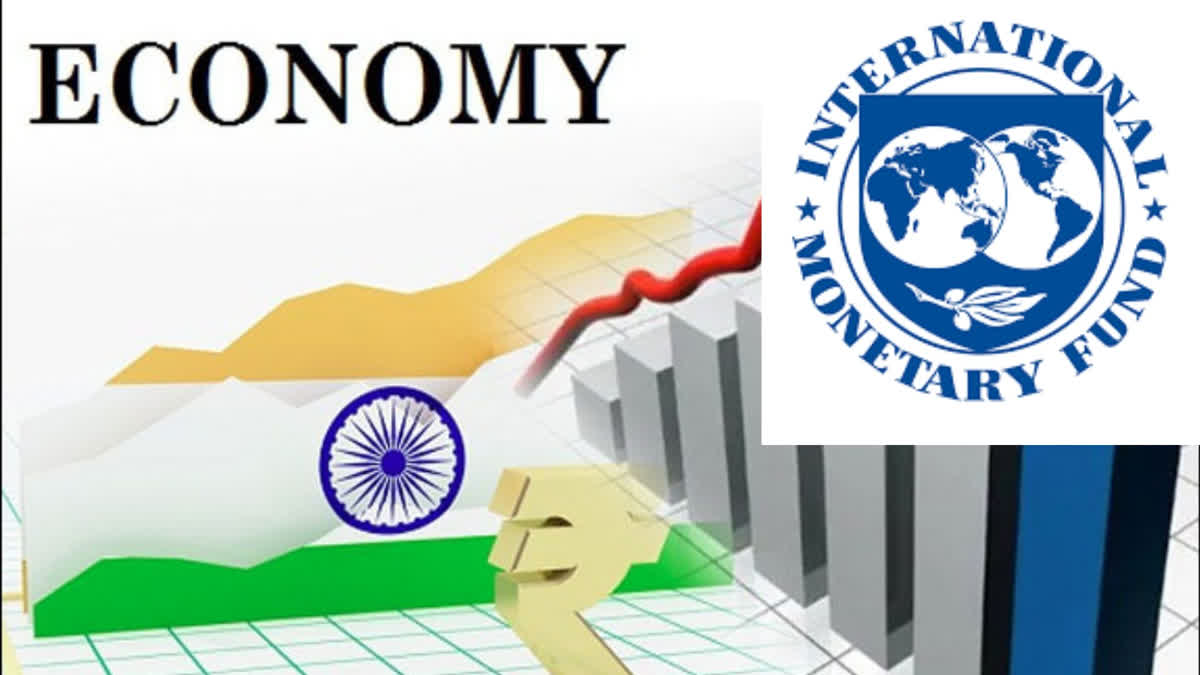Marrakech [Morocco] : The overall macroeconomic environment in India is "pretty sound", it is fiscally disciplined and the central bank moved fast to bring inflation under control, said the International Monetary Fund (IMF).
"They have been fiscally disciplined. They expect the fiscal at 5.9 per cent this year. The central bank has moved fast to bring inflation under control. The most recent number was 5 per cent (for September). So, inflation is coming down. So, overall, the macroeconomic environment is pretty sound in India," Krishna Srinivasan, Director of the Asia and Pacific Department, IMF, told a press briefing on the 'Asia and Pacific Region's Economic Outlook'.
To a question asked about what kind of policy interventions are needed at this juncture in India to lift growth, he said that given the significant potential of India, the country should think about structural reforms.
"Where I think in terms of if you want to really exploit the significant potential India has, then I think the need is for structural reforms. Again, there India has made significant strides, very impressive strides, in the area of digitalization and beefing up infrastructure where the efforts have been truly impressive. But beyond that, there could be reforms aimed at improving the business environment, labor reforms, removing trade restrictions. All these go into building an environment which will support investor competence more -- more so in India. So, structural reforms will be the key in supporting, I think," he said.
Further, when asked what kind of impact could sharp spike in bond yields and crude oil have on emerging market India and what could be done to shield the financial systems, his suggestion was to borrow "carefully". "In terms of the rising yields, you said, I think there -- I think this is true for every country, where if -- when interest rates start rising, I think it's important to keep in mind that sectors which are highly leveraged are likely to hurt more. And that's not just true for India, but it's true for other countries in the region. And that's why it's important to borrow carefully. And that applies to both the private sector and the public sector," he noted.
Also Read : China's exports, imports fell 6.2% in September as global demand faltered
Meanwhile, the IMF has just raised India's GDP growth forecast for India for the financial year 2023-24 to 6.3 per cent, its second upward revision since the April report. According to the latest World Economic Outlook report by the multilateral agency, which was released on Tuesday, the growth is expected to grow by 6.3 per cent this fiscal year, 20 basis points (100 basis points is equal to 1 percentage point) higher than what it had estimated in its previous report.
IMF attributed stronger-than-expected consumption during April-June for the upward projection in the growth estimate. The growth forecast was raised from 5.9 per cent in April, 6.1 per cent in July, to 6.3 per cent now, taking it closer to the 6.5 per cent predicted by the Indian authorities. For 2024-25, IMF pegged India's GDP growth at 6.3 per cent, though unchanged from its earlier two projections. IMF projected India's consumer inflation at 5.5 per cent this fiscal, against RBI's 5.4 per cent forecast. RBI expects Q2 (Jul-Sep) inflation at 6.4 per cent, Q3 (Oct-Dec) at 5.6 per cent and Q4 (Jan-Mar) at 5.2 per cent. For Q1 (2024-25 fiscal), it is projected at 5.2 per cent.



